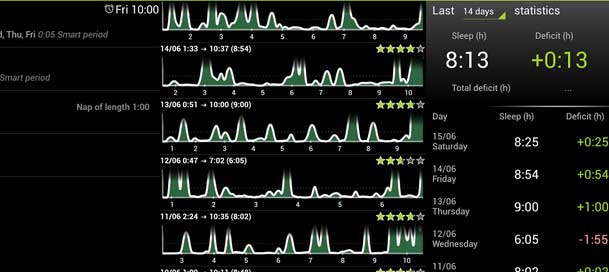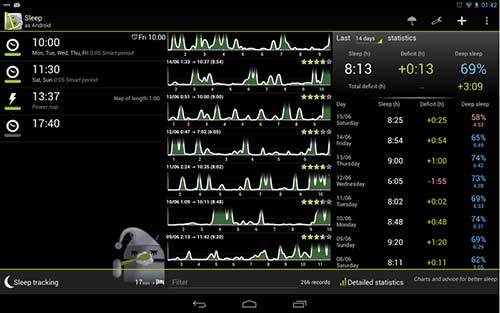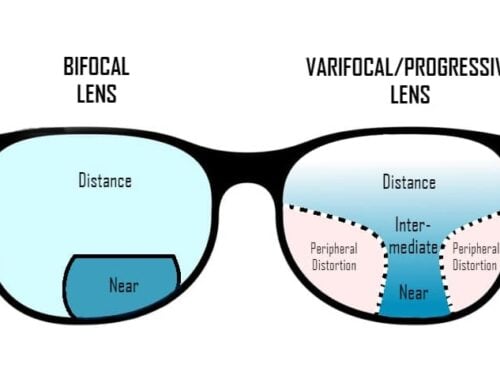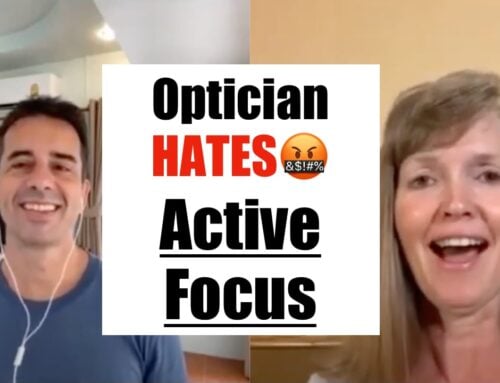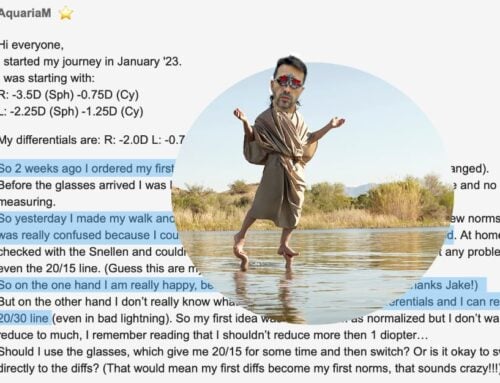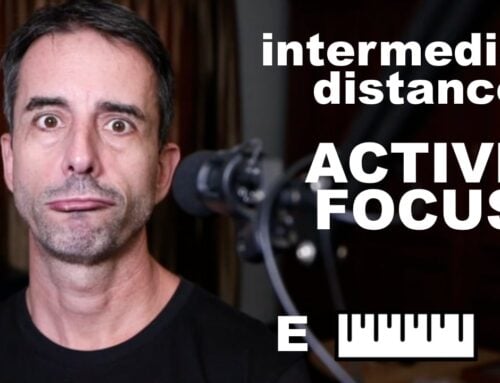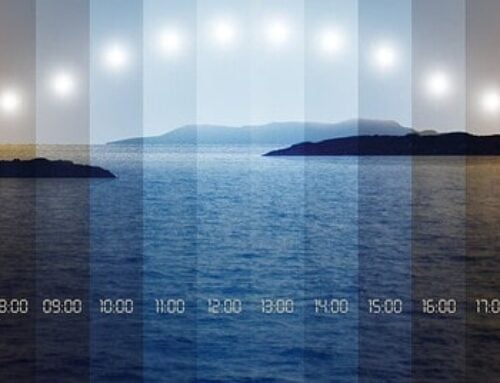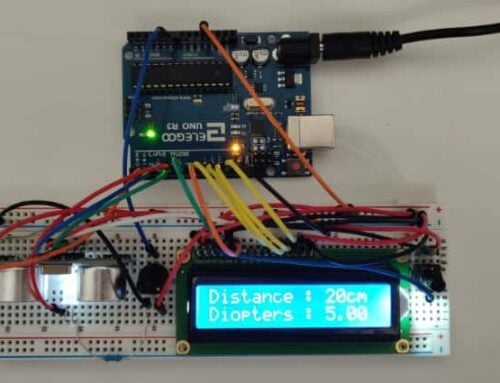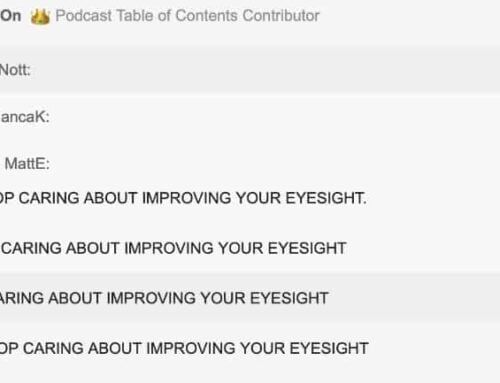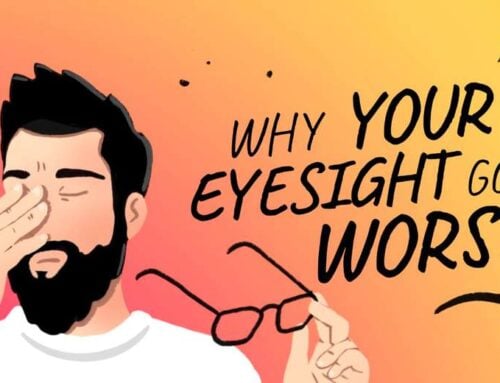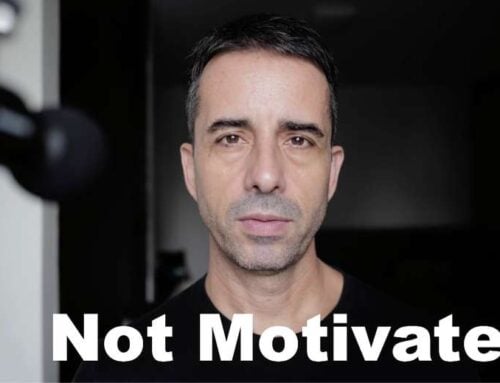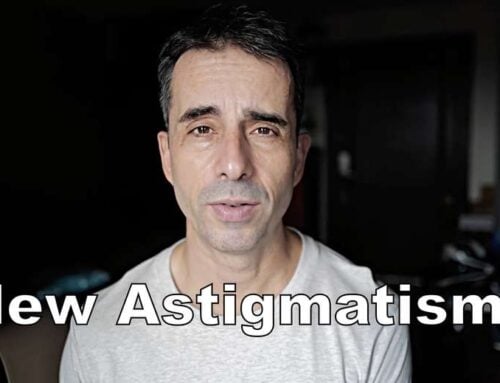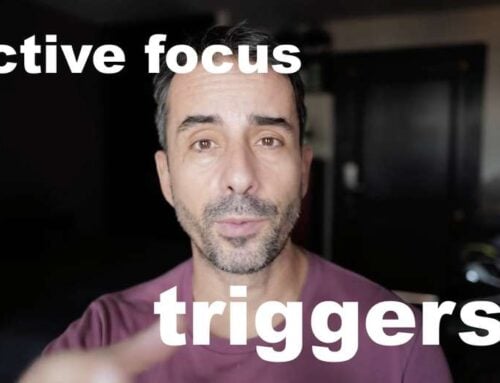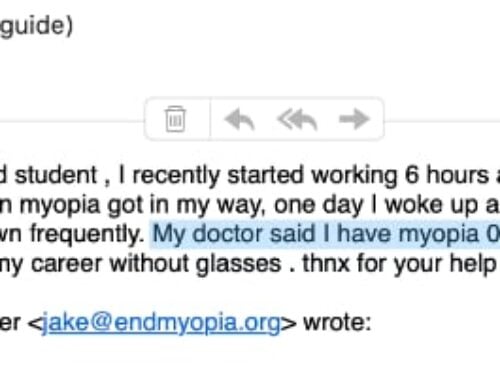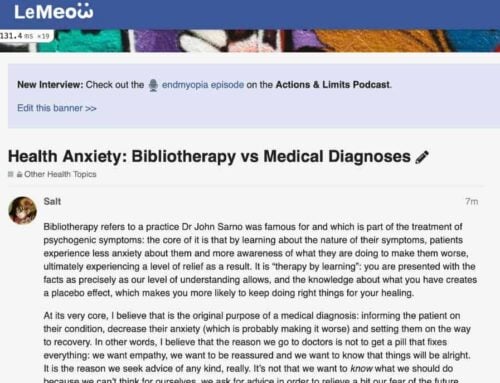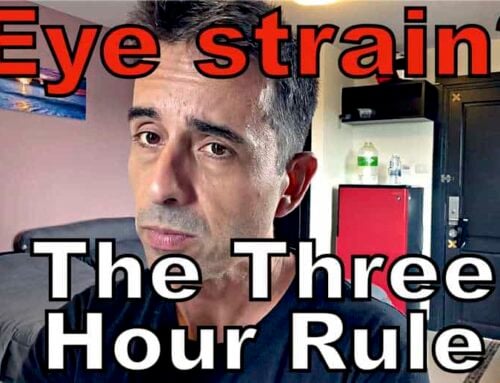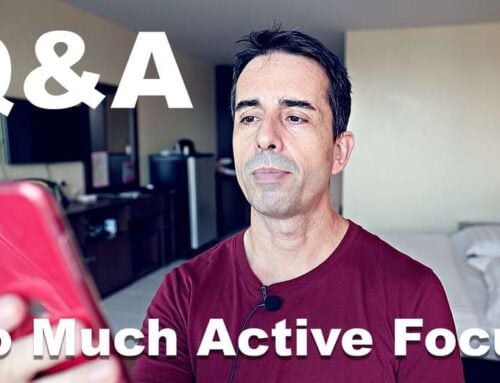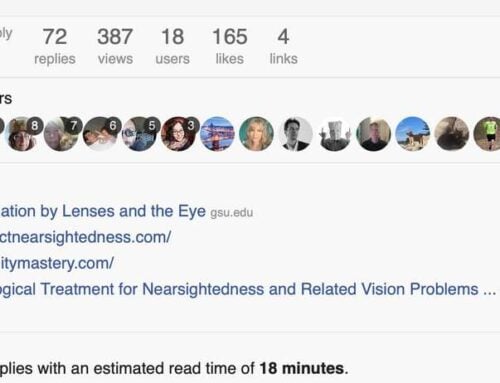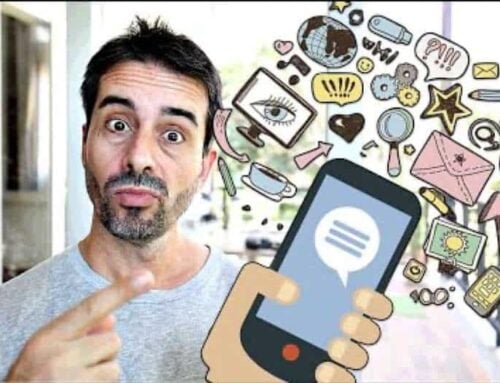Do you remember waking up sometimes, and the room just seemed extra blurry?
In this post we will take a look at sleep and it’s effects on your eyesight.
If you have managed to get away from single prescription paradigm and are not wearing excessively strong prescriptions (try the self check prescription tool), you already know this:
Your eyesight varies quite a bit, even throughout a single day. A number of things affect how well you see:
- Ambient Light (brightness, U.V. spectrum)
- Object Specific (moving vs. stationary, colors / contrast, display quality, etc)
- Eye Strain (increasing with hours of close-up focus)
- Prescription Lens Quality (lens coatings, index)
- Other Factors: Stress, Exercise, Diet
Especially if you have done the Vision Improvement Course, you likely have been having good days (and weeks, months), and ones where you might feel you are missing out on eyesight improvement opportunities.
You might have gone from a -4.75 prescription to a -2.50 in six months, but suddenly you are finding yourself stuck.
There are a lot of factors that affect your eyesight, both long and short term. Let’s look at sleep as one of them, today:
A poor nights sleep can leave you having to squint, get closer to your monitor, miss being able to read your usual lines on the Snellen eye chart. This can be just a single day occurrence, if you just happened to have a bad night.
But What If Low Sleep Quality Is A Pattern For You?
You may not even be aware that you are sleeping poorly, if it happens consistently (you loose your reference for how you should feel in the morning).
This is quite common, more so now during the Winter season. Our work schedule, use of poor quality artificial lighting (more about that here), and alarm clocks tend to make a mess out of our natural sleep schedule. And this might hold you back with your eyesight improvement goals.
Years ago, in our practice, I would sometimes have clients participate in sleep cycle testing (done by a third party). I would do this whenever there were symptoms present that made sleep deprivation a likely contributing cause for less than ideal eyesight. Back then this was not a fun undertaking, requiring wires, monitoring tools, and sleeping at a clinic for the measurements. Fortunately, there is a much better way now.
But before we get to that, let’s briefly look at symptoms.
While sleep is only a contributing factor, and not nearly as important as minimizing strain and being careful about not being over prescribed, it sometimes warrants review.
You might want to consider some of the following, as indicators of low sleep quality:
- You tend to wake up drowsy in the morning.
- Unusual sleep requirements (night shift work, alternating sleep schedules, frequent jet lag, etc).
- Puffy eyes, red eyes, discoloration below your eyes in the morning.
- Poor mood in the morning.
- Loss of appetite in the morning.
- Dependency on caffeine in the morning.
- Indication of significant movement during your sleep (pillows on the floor, sheets dislodged, etc).
Of note too: Alcohol consumption can also affect your sleep quality.
If your morning vision is poorer than after 1-2 hours of focus, it is also likely that you are not sleeping well.
The good news is that sleep cycle testing is no longer a major inconvenience or undertaking.
As long as you have a recent smartphone or tablet, you can download an application that will (with reasonable accuracy), chart your sleep quality. My favorite is Sleep As Android (I don’t know about iOS applications as I currently don’t own such a device – you may search for ‘sleep cycle’ to find a number of options).
You simply place your device on your bed with you, and it measures the vibrations of your mattress as you move in your sleep.
Take a look at their instructions for some important considerations (as example, the system does not work well on beds that don’t conduct movement, such as some types of memory foam).
Here Is What To Do With This App:
If you log your eyesight improvements (more on that topic here), you can add a comment about your sleep here as well. Over the long run this can help you diagnose any drop offs in eyesight quality, and help fix issues.
More importantly, this tool waits to wake you up at a time that you are not in deep sleep.
You can set a time frame when you are to be woken up, to give the tool a range to wake you up at the best time in your sleep cycle. For example, you may need to be up at 7AM. You can set the tool to wake you anytime between 6:30 and 7, and let it choose the time that you are sleeping light.
This simple change in your alarm clock use can provide a noticeable improvement in your morning eyesight, as well as your long term vision – reducing sleep cycle disruptions tends to have a positive effect on acuity.
This is even more relevant if you have made it to where you experience double vision instead of just blur at your maximum focus distance (more on double vision awareness practice here).
As a lot of the clarity of your eyesight at this level is determined in your brain (the visual cortex), rather than by your eyeball, better sleep can give you a significant leap in clearing double vision for a perfect image.
Try out a sleep cycle monitor / alarm clock combination.
It does not add any extra effort, and if you collect a month’s worth of data, you will have a reference for future use – and a means to troubleshoot possible existing sleep issues that you may not even have been aware of.
***
I originally planned to have this practice posted as part of the Winter Installments. Instead I added it to the blog – I hope you get some benefit from this suggestion even if you have not worked on actively improving your eyesight (yet).
If you liked this post, consider sharing it with your friends (Facebook ‘Like’ at the top and bottom of the page).
They will appreciate a better alarm clock, and might even be tempted to start thinking about taking better care of their eyesight.
And as always, enjoy!

